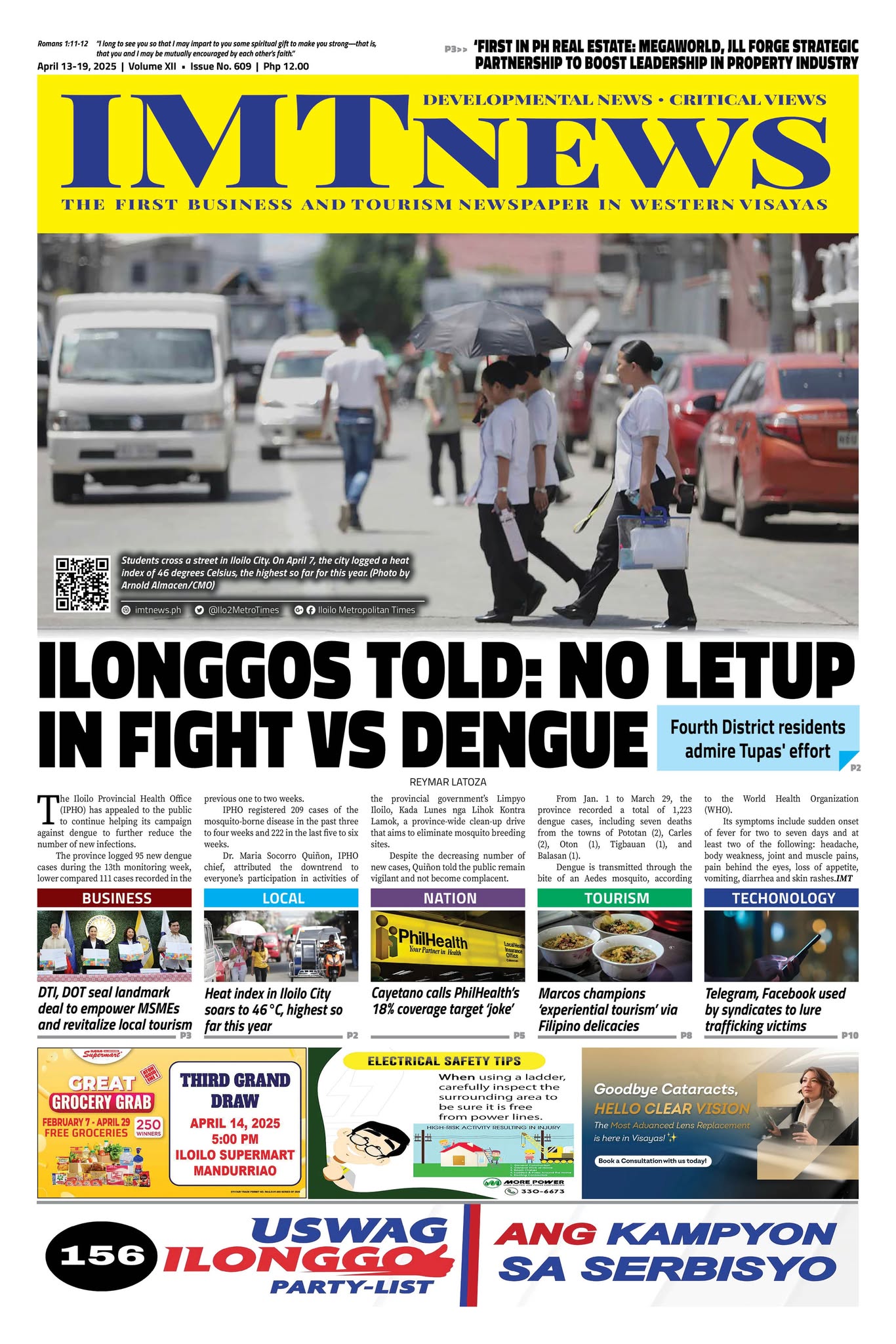Ilonggos have always been known for our gentleness. Our kindness. Our grace. We take pride in being respectful, dignified, and mindful of others. And yet, these past few years, I find myself quietly wondering: are we still that community?
A few days ago, I rode a jeepney in the heart of the city. It’s a simple act, one I still do from time to time—not only out of habit but to keep myself grounded in the rhythm of everyday life. But as I tried to embark, I had to gently push past several passengers who neither moved nor acknowledged the need to give way. Heads down, earphones in, unaware or perhaps unwilling to notice.
It was a small moment. But one that lingered.
Another time, I was at the Iloilo International Airport—our province’s proud gateway to the world. I saw wrappers on the floor, empty plastic water bottles on benches, and trash casually left behind. It struck me, not because it was a rare sight, but because it has become too common. These may seem like isolated acts, but they point to a broader question: Have we lost our sense of community?
Progress, But at What Cost?
Iloilo is rising—and rising fast. We are growing in stature, in infrastructure, in ambition. From thriving tech zones to beautifully restored heritage districts, we are becoming a city and province to watch. And rightfully so.
But with progress comes a subtle danger: the fading of shared responsibility. The busier we become, the more private we turn. The more successful we grow, the more detached we risk becoming—from our neighbors, from our common spaces, from each other.
The spirit of pagpakig-angot—that deeply Ilonggo way of being connected to others—seems to be slowly eroding. I worry that our children are growing up with fewer examples of simple courtesies: moving aside to let others pass, helping the elderly cross the street, and throwing trash where it belongs. These are not just good manners—they are acts of community.
Civic-Mindedness Is Not Passé
When we look back, Iloilo was built not only by visionary leaders but by citizens who showed up. Our grandparents and great-grandparents swept the streets in front of their homes not because they were told to—but because they knew it was their part. Ang paglimpyo, indi lang obra sang munisipyo—obra man naton ini.
In their world, being Ilonggo meant being mindful. It meant thinking beyond oneself. Public spaces were treated with respect. Jeepney rides were shared with courtesy. Trash was picked up not just because it was unsightly—but because it was ours to take care of.
We must remember: our identity as a dignified people is not simply inherited—it must be lived and passed on. Civic-mindedness is not outdated. In fact, it may be the very thing that sustains our progress.
A Gentle Wake-Up Call
I do not write this as a complaint, but as a gentle call to reflection. A quiet reminder that as we build flyovers and convention centers, we must also rebuild the invisible things that hold a community together—respect, discipline, shared responsibility.
Let’s begin again with the small things. Remind children to clean up after themselves in parks and schools. Make space for others in public transport. Say “Excuse me” and “Thank you” not as niceties, but as norms. Let’s care about how we behave in spaces we share.
This is not just about courtesy. It’s about character. Because how we treat the commons—our roads, terminals, schools, benches, rivers—is how we define ourselves as a people.
Leadership Starts with Us
We call on our barangay leaders, educators, media, and civic organizations to champion this conversation. Let us integrate values formation into daily life—not as sermon but as example. Let us amplify stories of kindness and cooperation, and celebrate those who quietly uplift others.
To our educators: model discipline and empathy in the classroom. To the media: portray not only progress but also the people behind it. To our public officials: set the tone through personal example. And to every Ilonggo: ask yourself, Am I still contributing to the community I want to live in?
The Spirit is Not Lost—It Needs Rekindling
I still believe in the Ilonggo spirit. I see it in the eyes of students who volunteer to teach younger kids in remote barangays. I see it in the quiet resilience of workers who pick up trash before sunrise. I see it in communities that come together during storms, during blackouts, during moments of need.
The Ilonggo spirit is not lost—it is simply waiting for us to remember it.
Progress will continue. And it should. But let us not mistake modernity for individualism. We can be modern and still be kind. We can be global and still be rooted. We can rise as a city and province—and still remain maalwan, matinahuron, kag may pagkabuot.
Let us choose to be that community again. Because in the end, it is not just roads and buildings that define us. It is how we treat one another—especially when no one is looking.
And perhaps that is where true greatness lies.
Ken Lerona is a marketing and branding leader with over 20 years of experience across consumer, telecommunication, real estate, logistics technology, and consumer finance technology industries. He gives talks and workshops for private and government organizations. He is also a consultant of reputational risk management. Find him on LinkedIn at www.linkedin.com/in/kenlerona.







